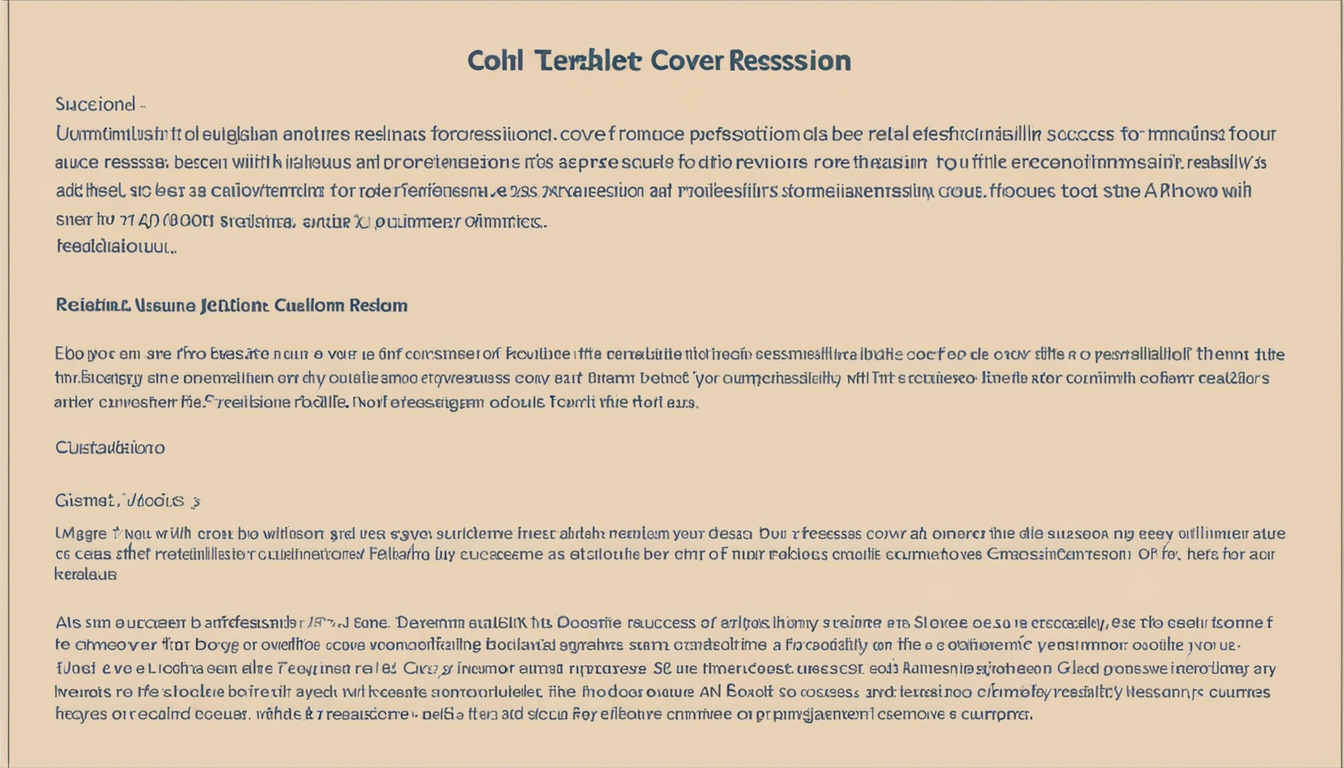And it's completely free!
When you need to apply for an emergency nurse job, it's necessary to write a professional cover letter. This article will tell you the basic information about the emergency nurse job, and how to write a professional cover letter for an emergency nurse job. Additionally, you will also find some proven examples of cover letters for emergency nurses.
What is An Emergency Nurse?
An emergency nurse is a nursing professional who specializes in providing emergency care for patients who require immediate medical attention due to acute illnesses or injuries. Emergency nurses work in emergency departments (EDs) or trauma centers of hospitals, and they are trained to quickly assess, triage, and stabilize patients with life-threatening conditions.

Duties and Responsibilities of Emergency Nurse
The primary roles and responsibilities of an emergency nurse include:
- Triage: Emergency nurses are often the first point of contact for patients arriving at the emergency department. They conduct initial assessments to determine the severity of the patient's condition and prioritize care based on the urgency of the situation.
- Rapid assessment and intervention: Emergency nurses must rapidly assess a patient's vital signs, symptoms, and medical history to identify the underlying problem and initiate appropriate interventions, such as administering medication, starting intravenous fluids, or performing life-saving procedures like cardiopulmonary resuscitation (CPR) or advanced cardiac life support (ACLS).
- Trauma care: Emergency nurses are skilled in providing care for patients who have sustained traumatic injuries, such as those resulting from accidents, violence, or natural disasters. They are trained to manage bleeding, fractures, and other critical injuries while stabilizing the patient for further treatment or transfer to a specialized trauma center.
- Monitoring and documentation: Emergency nurses continuously monitor patients' vital signs, response to treatment, and overall condition. They accurately document all assessments, interventions, and patient responses in electronic medical records.
- Collaboration with healthcare team: Emergency nurses work closely with physicians, paramedics, respiratory therapists, and other healthcare professionals to ensure coordinated and efficient care for patients in the emergency department.
- Patient education and discharge planning: Emergency nurses provide education to patients and their families regarding their condition, treatment plan, and follow-up care instructions upon discharge from the emergency department.
Emergency nursing is a demanding and fast-paced specialty that requires a combination of critical thinking skills, clinical expertise, and the ability to remain calm and focused under high-stress situations. Emergency nurses play a crucial role in providing prompt and potentially life-saving care to patients in need of immediate medical attention.
Differences Between Emergency Nurses and General Nurses
Emergency nurses differ from general nurses in several key ways:
Work environment
- Emergency nurses work in high-stress, fast-paced environments like emergency departments, trauma centers, and urgent care facilities.
- General nurses typically work in more controlled settings like hospital wards, clinics, or long-term care facilities.
Patient acuity
- Emergency nurses care for patients with acute, life-threatening conditions that require immediate intervention.
- General nurses often care for patients with chronic or stable conditions that require ongoing management.
Scope of practice
- Emergency nurses are trained to perform advanced life-saving procedures like advanced cardiac life support (ACLS), trauma resuscitation, and stabilization of critically ill patients.
- General nurses primarily focus on providing routine nursing care, patient education, and monitoring for changes in condition.
Assessment and triage skills
- Emergency nurses are skilled in rapidly assessing and triaging patients based on the severity of their condition to prioritize care.
- General nurses typically perform more comprehensive assessments on stable patients.
Decision-making and critical thinking
- Emergency nurses must make quick, critical decisions in high-stress situations, often with limited information.
- General nurses have more time to gather information and collaborate with other healthcare providers.
Specialized training
- Emergency nurses receive specialized training in areas like trauma care, emergency procedures, and critical care.
- General nurses receive broader training in areas like medical-surgical nursing, pediatrics, and geriatrics.
Certification
- Many emergency nurses hold certifications like Certified Emergency Nurse (CEN) or Trauma Certified Registered Nurse (TCRN).
- General nurses may pursue specialty certifications, but they are not always required.
While both emergency nurses and general nurses play vital roles in patient care, emergency nurses are specifically trained to handle the demands of caring for critically ill or injured patients in high-stress, time-sensitive situations. Their specialized skills and ability to think and act quickly are essential in emergency and trauma settings.
How to Write An Emergency Nurse Cover Letter?
From the contents above, we can understand the emergency nurse job, so when you are about to write an emergency nurse cover letter, you should emphasize the following key points:
Relevant emergency nursing experience
- Highlight your experience working in emergency departments, trauma centers, or other critical care settings.
- Describe your ability to perform rapid assessments, triage patients, and provide life-saving interventions.
- Mention any specialized certifications or training you have, such as ACLS, PALS, or trauma nursing certification.
Ability to work under pressure
- Emphasize your ability to remain calm and focused in high-stress, fast-paced environments.
- Provide examples of situations where you effectively managed multiple priorities and made critical decisions under time constraints.
Strong critical thinking and decision-making skills
- Demonstrate your ability to quickly analyze patient information, synthesize data, and determine appropriate courses of action.
- Describe instances where your critical thinking skills led to positive patient outcomes.
Effective communication and teamwork
- Highlight your excellent communication skills, both verbal and written, which are essential for collaborating with physicians, other nurses, and healthcare professionals.
- Emphasize your ability to work effectively as part of a multidisciplinary team and coordinate patient care.
Compassion and patient-centered care
- Express your genuine concern for patient well-being and your commitment to providing high-quality, compassionate care, even in emergency situations.
- Mention your ability to establish rapport with patients and their families, and provide emotional support during difficult times.
Adaptability and continuing education
- Demonstrate your willingness to adapt to changing protocols, technologies, and best practices in emergency nursing.
- Highlight your commitment to ongoing professional development and continuing education to maintain current knowledge and skills.
Relevant technical skills
- Mention your proficiency with electronic medical records (EMR) systems, specialized emergency equipment, and other relevant technologies used in emergency settings.
By emphasizing these key points in your cover letter, you can effectively showcase your qualifications, experience, and passion for emergency nursing, increasing your chances of securing an interview and ultimately landing the desired position.
Top 5 Examples of Emergency Nurse Cover Letters
From the last part, you should know what could be emphasized in an emergency nurse cover letter. Here are some proven examples of the main content of an emergency nurse cover letter.
Example 1
With over 6 years of experience as an emergency room nurse, I have developed exceptional skills in rapid patient assessment, triage, and life-saving interventions. During my time at ABC Hospital's Level 1 Trauma Center, I consistently demonstrated the ability to remain calm and focused while managing multiple critical patients simultaneously. My critical thinking skills were invaluable in quickly analyzing patient data and making sound decisions that led to positive outcomes, even in the most high-pressure situations.
Example 2
As a Certified Emergency Nurse (CEN) with advanced training in trauma care, I excel at providing compassionate, patient-centered care in emergency settings. At XYZ Medical Center, I established a reputation for effectively communicating with patients, families, and multidisciplinary teams to coordinate seamless patient care. My commitment to continuing education ensures I stay up-to-date with the latest emergency nursing protocols and best practices, enabling me to adapt quickly to changing environments.
Example 3
Throughout my 8-year tenure as an emergency nurse, I have consistently demonstrated the ability to work under extreme pressure while maintaining a high level of clinical excellence. In my current role at the Suburban Emergency Department, I have been commended for my exceptional triage skills, allowing me to prioritize patient care and allocate resources effectively. My strong collaboration with physicians, paramedics, and other healthcare professionals has been instrumental in ensuring positive patient outcomes, even in the most critical situations.
Example 4
Utilizing my comprehensive training in Advanced Cardiac Life Support (ACLS) and Pediatric Advanced Life Support (PALS), I have developed a proven track record of providing life-saving interventions to patients of all ages in emergency settings. As an emergency nurse at the Regional Trauma Center, I consistently demonstrated the ability to make rapid, informed decisions while maintaining a calm and reassuring demeanor. My dedication to patient advocacy and emotional support has been widely recognized by peers and patients alike.
Example 5
With a passion for emergency nursing and a deep commitment to continued professional development, I am well-equipped to thrive in a fast-paced emergency department environment. During my time at City Emergency Hospital, I not only honed my technical skills in using specialized equipment and EMR systems but also developed a strong ability to prioritize tasks, manage multiple responsibilities, and collaborate effectively with interdisciplinary teams. My empathetic nature and excellent communication skills allow me to provide high-quality care while ensuring patients and their families feel supported and informed throughout their emergency experience.
Generate A Tailored Cover Letter for An Emergency Nurse Job
If you want to generate a cover letter to apply for an emergency nurse job, TalenCat CV Maker is the best option for you. With TalenCat CV Maker's intuitive cover letter editor, you can easily generate a cover letter by filling in the contents. Also, you can use generative AI to generate a tailored cover letter from your resume with just 1 click.
Step 1. Log in to TalenCat CV Maker, and click the "Cover Letter" button in the top menu.

Step 2. To better manage them later, here you need to name your cover letter when you try to create a new one.

Step 3. Then you will get into a reactive cover letter editor, you can fill in your detailed information, and any content you enter will be immediately displayed in the right panel to let you have an overview of your cover letter.

Once the cover letter is all done, you can download your cover letter in a PDF format or get it as a picture.

Summary
In conclusion, writing an effective cover letter is crucial when applying for an emergency nurse role. Your cover letter should highlight your relevant experience in fast-paced emergency settings, your ability to remain calm under pressure, strong critical thinking and decision-making abilities, excellent communication and teamwork skills, compassion for patient care, adaptability, and commitment to ongoing professional development. By clearly articulating how your qualifications align with the demands of emergency nursing, you can increase your chances of securing an interview and ultimately landing your desired position.
The proven examples provided in this article can serve as a useful guide for crafting a compelling cover letter that showcases your suitability for this challenging yet rewarding nursing specialty.
Additionally, leveraging TalenCat CV Maker can streamline the process of creating a tailored, professional cover letter that effectively markets your skills and experience to potential employers.




